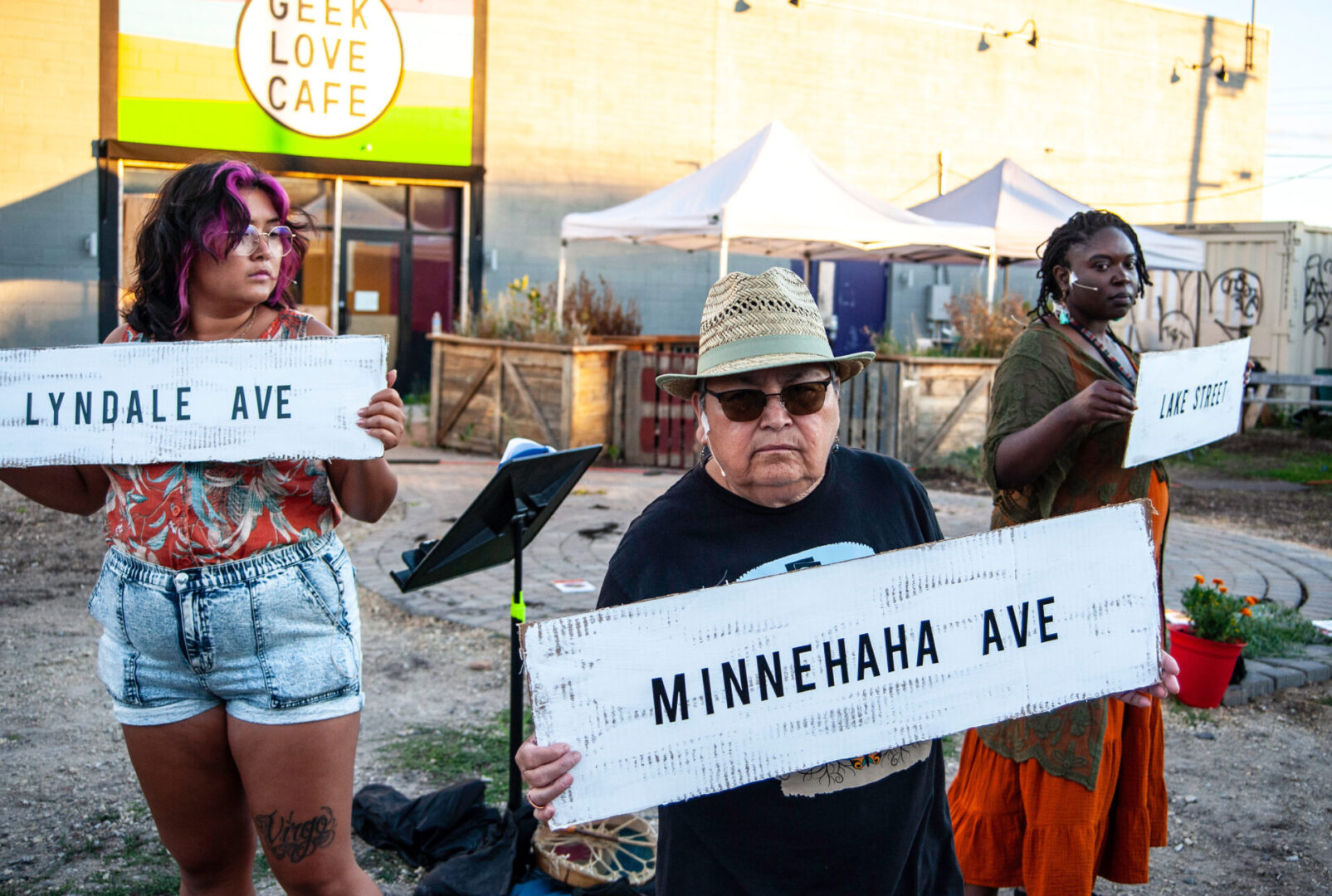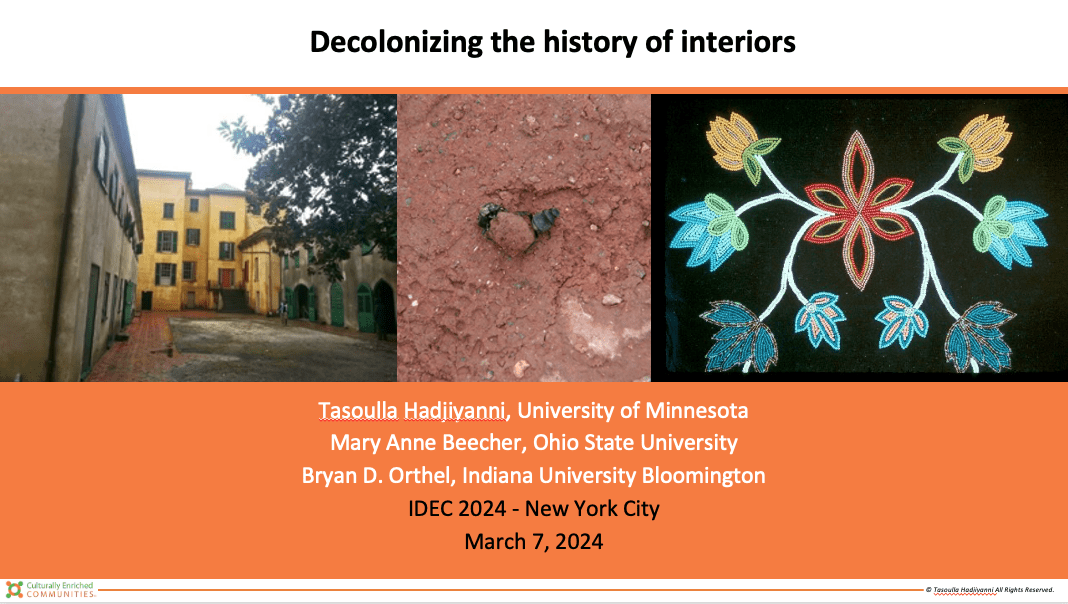Decolonizing interior design history
"Decolonizing compels all of us to take a stand as it calls for identifying systems of exclusion as well as working to change them." Tasoulla Hadjiyanni, 2020
We started a series of dialogues to help us chart a trajectory forward.
Dialogues
Karen Driver, Senior Advisor to the President Native American Affairs, University of Minnesota
Start with relationality - knowledge creation for the sake of knowledge creation is not useful. This is about making the world a better place. Visibility - indigenous learners should be able to see themselves in the class. Vocabulary - "other ways of knowing" is already calling us an "other." Reindigenizing - when you talk about decolonizing you are automatically centering the colony. Do not simply appropriate - demonstrate how do you value that expertise? Values - how does race and culture manifest in day-to-day life? Talk about resilience and adaptability - not just stereotypes. Impact - going back to relationality, how does what you teach translate into the present and how does it contribute to meetings the needs of our youth, our elders?


Craig Wilkins, Associate Professor of Architecture, University of Michigan Taubman College of Architecture and Urban Planning.
Why is it that perhaps Black people see buildings and space differently? Who has the power to impose their vision of space to another? There are always parallel stories and there are always stories that rise to the top and there are stories that are not heard. Find those lesser stories as those are the stories that give us a full understanding what it is to study architecture. Ask questions not just about the object but who is constructing the narrative that ultimately became part of the canon. Read Bi-Space.
Dipankar Mukherjee and Meena Natarajan, Pangea World Theater
"Let's search together," Dipankar replied when I invited them to join us. What's valued in society? There has to be a process of decolonizing before you can reindigenize anything. Be aware of the ways you function. How can you appreciate what you have? How can you also give up ways of being so you have a choice of what to do? The inquiry itself democratizes the process. We operate in a place, space, and culture defined by Colonization, Genocide, and Slavery. Decolonize the body and the mind. Be cognizant of the politics of space--who gets to use it and how, what are the criteria for one to join the circle? How do we measure impact? In whose retina am I in the margin? Interrogate your vocabulary. Part of decolonization is building solidarity among people - belonging over inclusion. How can we build relationships in a way that is deep and sustainable.


IDEC 2024 NEW YORK CITY - PANEL DISCUSSION
Toward a set of best practices:
- Words matter - How we construct and present ideas matters
- Interrogate all images - Who made them and when? Who was the anticipated audience? Whose point of view do they express?
- Rethinking - Which stories are “worthy” of telling? What are the learning objectives? What is valued in society?
- Openness - Being open to learning and unlearning
- Focus - Focus on tightly-framed case studies that illustrate moments in time rather than sweeping generalities
- Holistic - Engage the whole curriculum
- Impact - Think of how the past informs the present and the future
